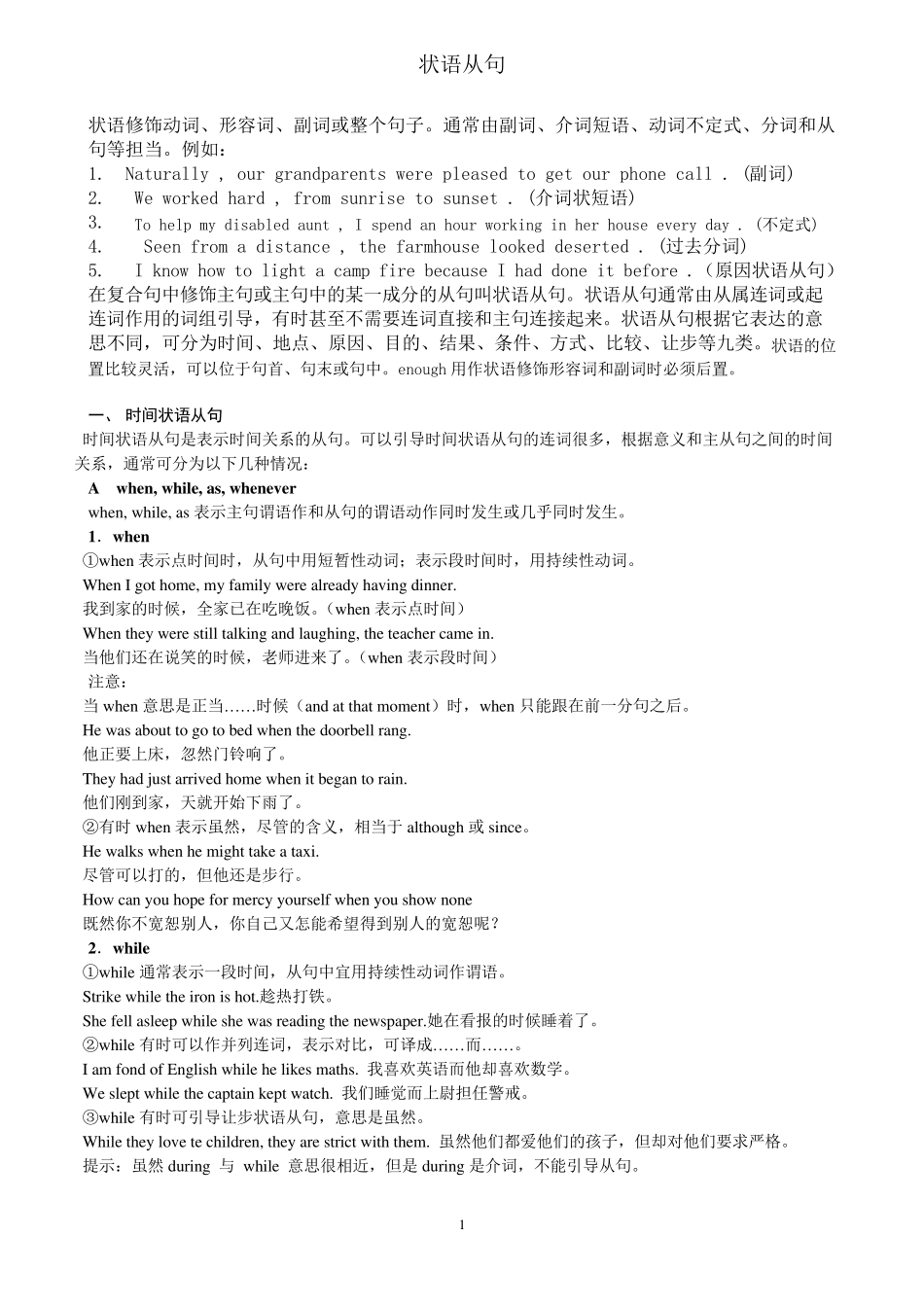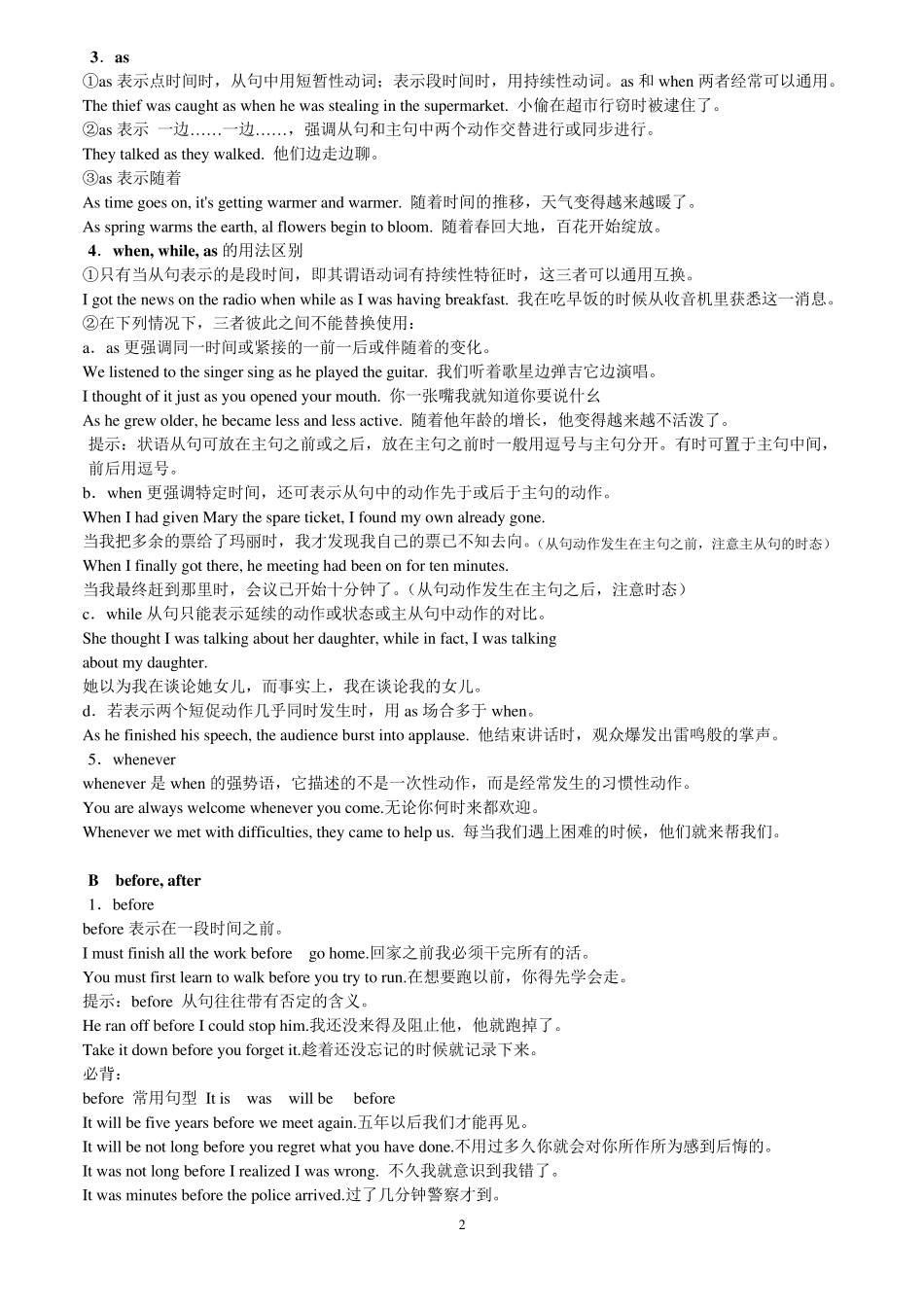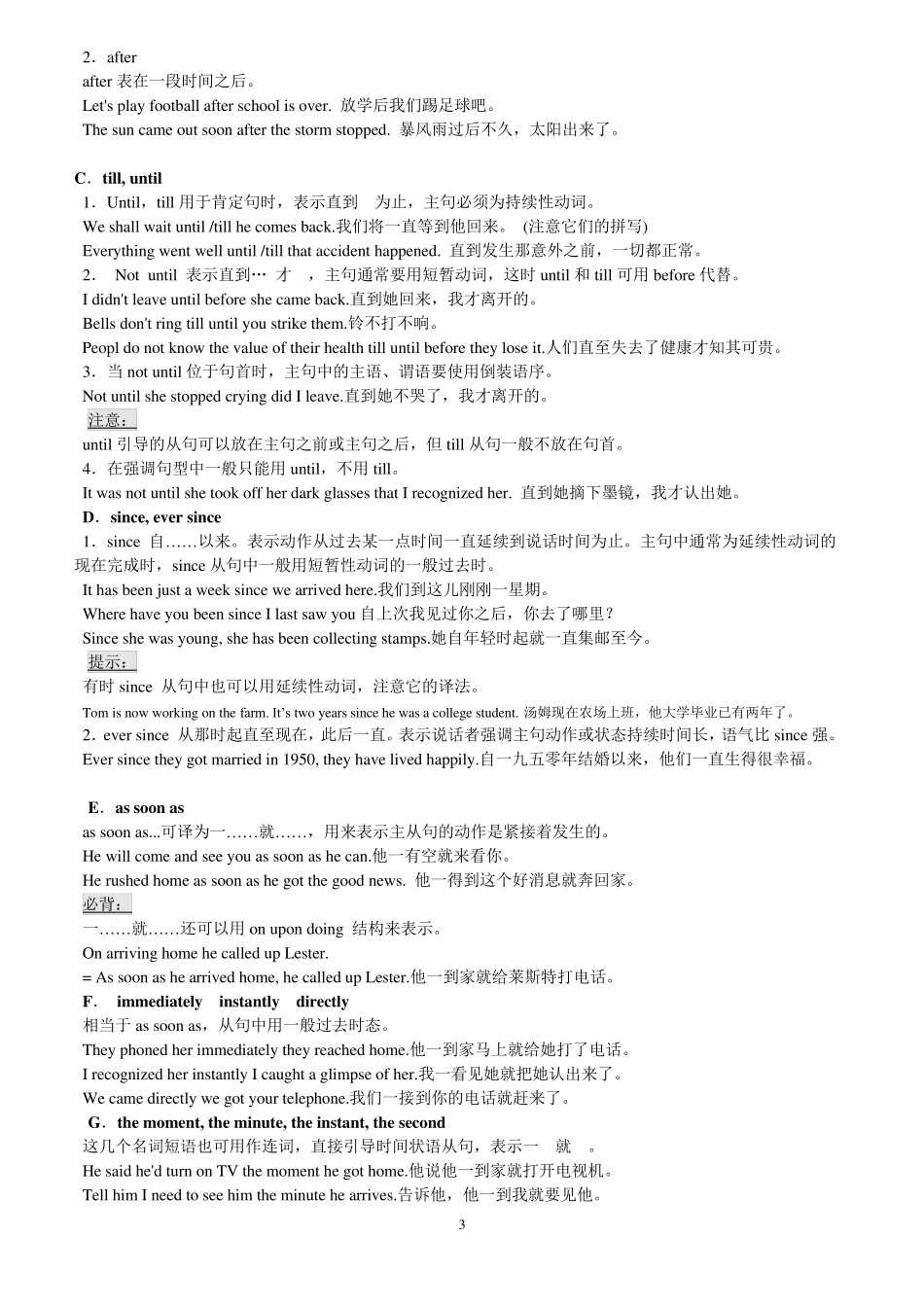1 状语从句 状语修饰动词、形容词、副词或整个句子。通常由副词、介词短语、动词不定式、分词和从句等担当。例如: 1. Naturally , our grandparents were pleased to get our phone call . (副词) 2. We worked hard , from sunrise to sunset . (介词状短语) 3. To help my disabled aunt , I spend an hour working in her house every day . (不定式) 4. Seen from a distance , the farmhouse looked deserted . (过去分词) 5. I know how to light a camp fire because I had done it before .(原因状语从句) 在复合句中修饰主句或主句中的某一成分的从句叫状语从句。状语从句通常由从属连词或起连词作用的词组引导,有时甚至不需要连词直接和主句连接起来。状语从句根据它表达的意思不同,可分为时间、地点、原因、目的、结果、条件、方式、比较、让步等九类。状语的位置比较灵活,可以位于句首、句末或句中。enough 用作状语修饰形容词和副词时必须后置。 一、 时间状语从句 时间状语从句是表示时间关系的从句。可以引导时间状语从句的连词很多,根据意义和主从句之间的时间关系,通常可分为以下几种情况: A w hen, w hile, as, w henever when, while, as 表示主句谓语作和从句的谓语动作同时发生或几乎同时发生。 1.w hen ①when 表示点时间时,从句中用短暂性动词;表示段时间时,用持续性动词。 When I got home, my family were already having dinner. 我到家的时候,全家已在吃晚饭。(when 表示点时间) When they were still talking and laughing, the teacher came in. 当他们还在说笑的时候,老师进来了。(when 表示段时间) 注意: 当when 意思是正当……时候(and at that moment)时,when 只能跟在前一分句之后。 He was about to go to bed when the doorbell rang. 他正要上床,忽然门铃响了。 They had just arrived home when it began to rain. 他们刚到家,天 就 开 始 下雨 了。 ② 有时when 表示虽 然,尽 管 的含 义,相 当于although 或since。 He walks when he might take a taxi. 尽 管 可以打 的,但 他还是步行 。 How can you hope for mercy yourself when you show none 既 然你 不宽 恕 ...


